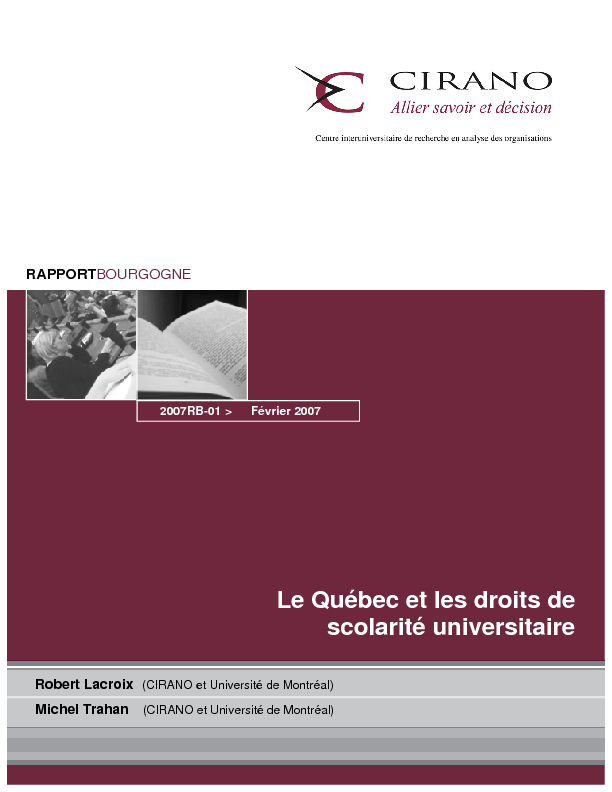Le Québec et les droits de scolarité universitaire
In this Burgundy report, the authors first have the argument that the government does not have the means to freeze school fees. Justifying the thawing of tuition fees with such an argument distorts the debate and obscures the real problems arising from low and uniform tuition fees. Then, the authors show to what extent the private positive return on the individual's investment in university education is not only widespread, but frequently very high. They also contradict the assertion that higher taxes more than offset the costs of education borne by the state and legitimize free education at university. They then discuss the important issue of accessibility to university studies. They then show that accessibility is largely determined before university entrance and that there are perverse effects resulting from tuition fees that are not only low but uniform in all fields of study.
The authors then present a new funding formula for universities that would increase accessibility despite the thaw in tuition fees; that would promote informed and optimal student choices; and that would encourage universities to achieve excellence and relevance in their training mission.
The authors conclude by saying that the tuition freeze has already had a significant impact on the accessibility of those who are truly in need and on the quality of university teaching and research in Quebec. There is an urgent need for university tuition fees to be thawed, gradually brought up to the Canadian average and deregulated to better reflect training costs by discipline sector. To the extent that a significant portion of the additional resources generated by this thaw will be devoted to programs focused on reducing the accessibility gap between youth from affluent socio-economic backgrounds and others, overall accessibility to university will increase and the redistribution of income from the less affluent to the rich, as promoted by the current situation, will decrease.




